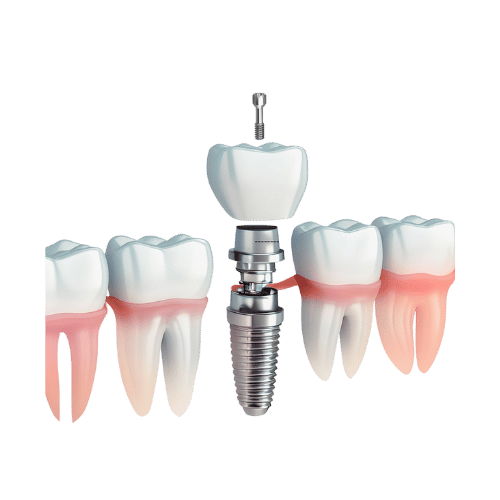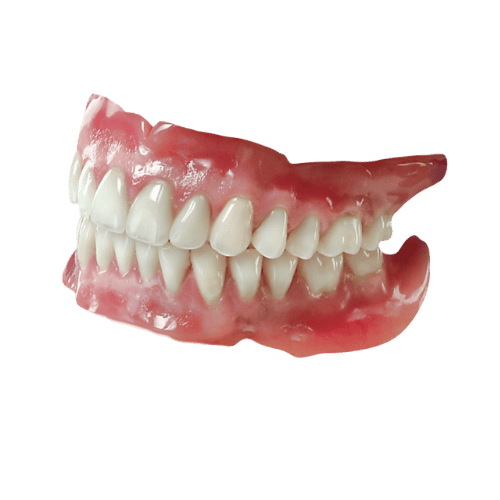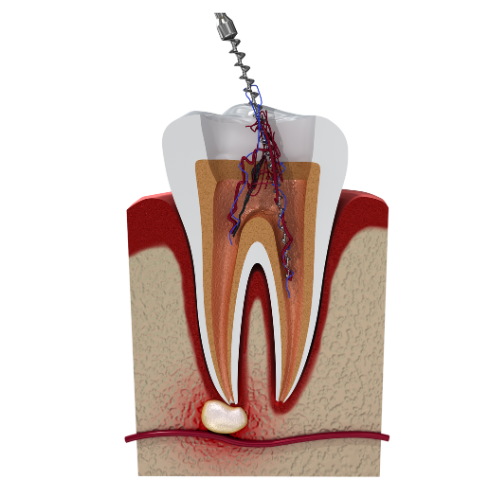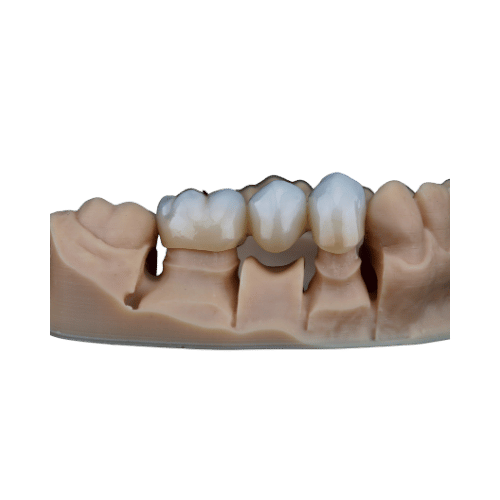Dental Implants
Replace your missing teeth with affordable dental implants. Stable and permanent tooth replacement from $128 after $1,950 Medisave subsidy.
Safe dental implant treatment rendered with tried and tested dental implant protocols. Find out how we increase the success rates of our dental implants via our Dental Implant v2.0 protocols.
toofus™ Dental is a certified Megagen implant system dental clinic.
Megagen Dental Implants
Megagen dental implants are Korean dental implants that are affordable and functional. They are similar to Osstem implants.
Anthogyr Dental Implants
Anthogyr dental implants are a French dental implant brand built for longevity. It is highly resistant to fractures and cracks.
Straumann Dental Implants
Straumann dental implants are the gold standard of dental implants. They are known for their constant reliability.
Dental Implants Experience
What Most Patients Say About Dental Implants
Feels Just Like Natural Teeth
In comparison to dentures, dental implants feel as if you were using your own teeth.
There is no worry of loose teeth when eating or teeth shifting when speaking.
Improved Confidence
Dental implants can help you feel like yourself again. Remember when you could speak freely without feeling self-conscious?
You can smile, talk, and eat without worrying about loose dentures or missing teeth.
Better Aesthetics and Functionality
Dental implants look and feel just like your natural teeth.
They restore your smile and let you bite, chew, and speak with ease just like before.
Long-Term Value
While dental implants are usually considered more costly than dentures, they are able to last a lifetime with proper maintenance and oral hygiene.
They are a one-time investment that avoids repeated repairs or replacements.
High Success Rates
Dental implant surgeries generally have a high success rate of 90-95% over a 10-year period especially if the procedure was done under the right conditions.
Speak and Chew Properly
If you have worn dentures or are currently wearing dentures, dental implants can be a huge upgrade.
Unlike removable dentures, implants stay firmly in place. You can enjoy your favourite foods and speak clearly without slips or clicks.
Dental Implants Patient Journey at toofus™ Dental
1st Visit: X-rays (OPG)
When you first enter toofus™ Dental for a dental implant consultation, you will be led to take an X-ray (OPG).
The OPG X-ray helps us determine your suitability for dental implants. Key factors that would qualify you for dental implants are strong bone and gum health, with no signs of infection or gum disease.
It also helps your attending dentist see whether there are any other underlying dental conditions you have so that we can better advise you on your oral health and treatment plan.
This also acts as a documentation of your oral health.
toofus™ does not charge for all X-rays (OPG) done at our dental clinic as we believe that X-ray diagnostics help our dentists treat you better.
1st Visit: Consultation and Assessment
During the consultation and assessment, your dental implant dentist will begin taking a thorough look in your mouth and at your teeth.
If you are coming in looking to replace a lost tooth, your dentist will check for bone loss.
If you have come in with a damaged tooth, or a tooth that can no longer be saved, your dental implant dentist will give you your treatment plan options.
Depending on the prognosis of your tooth, this can involve doing a root canal treatment, or extracting the tooth and replacing it with a dental implant.
1st Visit: CBCT Scans
Should you wish to proceed with dental implants treatment, CBCT 3D scans are taken of your teeth.
The 3D imaging scans help your dental implant dentist establish the depth and width of your bone.
It also helps us see what diameter the dental implant screw has to be, as well as how it should be angled to avoid critical anatomical structures.
In the case of insufficient bone depth, your dentist will inform you about the need for bone grafting.
At toofus™ Dental, we only use natural bone for our bone grafting procedures. We do not use synthetic bone graft materials as synthetic graft do not absorb as well as natural bone.
2nd Visit: Guided Biofilm Therapy (GBT)
To increase the success of your implant treatment and prevent the potential for bacterial infection, we do a thorough cleaning of your teeth and gums with Guided Biofilm Therapy (GBT) before placement of the implant.
Guided Biofilm Therapy is a non-invasive dental cleaning that discloses all plaque and tartar on your teeth before gentle cleaning with an airflow system.
2nd Visit: Treat Dental Implants With Plasma
Before the dental implant surgery, we treat each dental implant screw and abutment with cold plasma.
Research studies has shown that treating dental implants with cold plasma can help encourage better wettability, which in turn promotes osseointegration and healing.
2nd Visit: Dental Implant Surgery
During your dental implant surgery, your dentist will first expose the bone under your gums.
A drill is then used to perforate your bone.
The implant screw is then placed into the bone with an abutment above it.
Your dentist will then suture the implant and gums together to set it in place.
In some cases, instead of exposing the abutment, your implant screw might be buried and sutured under your gums instead.
In unique circumstances where your implant site is too close to a critical anatomical structure (e.g. your nerve or a sinus), a guided surgery using a surgical guide may be done.
2nd Visit: Photobiomodulation Therapy (PBM)
Once the suturing process is completed, we use a special laser called Photobiomodulation Therapy (PBM) on the surgical site.
This laser helps promote healing and safeguards against inflammation post-surgery.
3rd Visit: Suture Removal and Implant Review
You will return in 2 weeks to remove your sutures and check in on the healing of your dental implant.
4th Visit: Bone Stability and Osseointegration Review
You will return in 3 months after your implant surgery for a bone stability and osseointegration review.
During the visit, your dentist will use an Implant Stability Quotient (ISQ) device to check the stability of your dental implant in the jawbone.
The ISQ device uses Resonance Frequency Analysis (RFA) technology to provide information on how stable your dental implant is in the jawbone.
Higher ISQ values indicate greater stability and osseointegration.
4th Visit: 3D Intraoral Scan for Crown Impressions
If your implant has fully osseointegrated, a 3D intraoral scan is done of your teeth.
Your dentist will select a shade of your teeth that is most similar to your existing teeth.
The scan and teeth shade is then sent to our dental lab for production.
5th Visit: Dental Crown is Issued
You will return in about 7-14 days for the final issue of your dental implant crown.
The dental implant crown will be screwed into your implant screw for a fully restored and functional tooth.

Total Treatment Duration for Dental Implants
The total treatment duration for dental implants and restoration of a dental implant crown on the implant screw usually takes about 3 – 6 months.
Dental Implant Alternatives
If you do not qualify for dental implants or do not wish extract your teeth for dental implants, there are other tooth replacement or tooth restoration alternatives.
1

Dentures
Dentures are removable tooth replacement appliances that are affordable and suitable as a long-term or interim solution if you are unsuitable for dental implants.
2

Root Canal Treatment
Root canal treatment cleans out your infected tooth and root canals then seals the tooth in with a biocompatible filling followed by a dental crown (if necessary).
3

Dental Bridge
A dental bridge is a fixed and non-removable dental restoration that replaces one or more missing teeth by joining a pontic to adjacent teeth.
Not sure what you are most suitable for?
Dental Implants: Frequently Asked Questions
Everything you need to know about dental implants and more.
Can I use Medisave for my dental implants?
Yes, it is possible to use Medisave for your dental implants surgery if you are a Singaporean or Singaporean PR.
Dental implant surgery is a surgical procedure and allowed for claims.
The total amount of subsidy allowed for each procedure would be up to $1,950 per surgery.
How much will my dental implants cost after Medisave subsidy?
The final cost of your dental implants will be based on the following factors:
- Brand of dental implant;
- Type of dental crown;
- Experience of your dental implant dentist;
- Whether you are doing the dental implant surgery with a dental surgeon or dental specialist.
At toofus™ Dental, our popular dental implant package starts from $128 (out of pocket) after $1,950 (Medisave).
The implant package includes the following:
- Consultation
- X-rays (OPG)
- CBCT 3D scans
- Dental implant screw and abutment
- Dental implant crown (zirconia)
- Reviews and follow ups after surgery.
You can refer to our treatment costs for further information on our costs breakdown.
Can I wear dentures if I am waiting for my dental implant crown?
Yes, but it depends on several conditions:
- If your implant surgery is in a non-visible area (e.g. your molar tooth), or if you are replacing multiple teeth, a temporary denture might be allowed by your dentist.
- The denture must not put any pressure on your healing implant site. Pressure can disrupt osseointegration (the bone fusing to the implant), leading to failure.
- The denture has been adjusted by your dentist to avoid the implant site entirely.
Please take note that it is generally recommended that you:
- Avoid any contact or pressure near and around the implant site at least 7 to 10 days after your implant has been placed;
- Wear your dentures only if you need to and not constantly;
- Only wear dentures that has been adjusted by your dentist to avoid the implant site entirely.